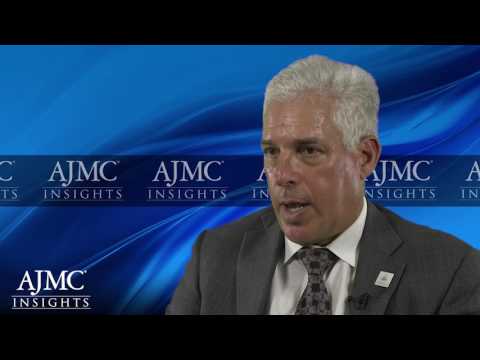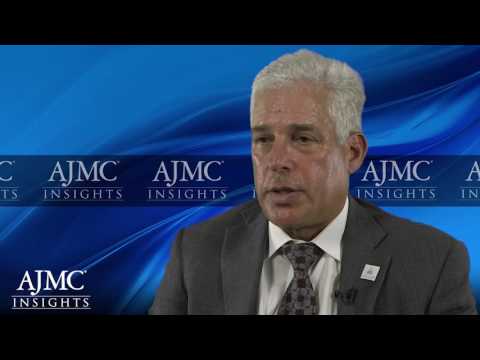
Oncology
Latest News
Latest Videos

More News





A federal appeals court has overturned a previous ruling and decided that biosimilar manufacturers must provide the innovator company a 180-day notice only after receiving FDA-approval for its biosimilar product.

The approval was based on the results of the phase 3 ENDEAVOR study.

Researchers from the Duke Cancer Institute have discovered that mutations in the BRCA1 gene can dramatically increase the probability of a woman developing serous or serous-like endometrial carcinoma.

Gregory C. Simon, executive director, White House Cancer Task Force, spoke at the National Comprehensive Cancer Network Policy Summit, held just 2 days before the Cancer Moonshot Summit.

Retail prices for 23 cancer drugs may be highest in the United States, but are less affordable in low-income countries despite lower retail prices.

The Oncology Care Model is one of the most recent bundled payment programs announced by CMS, going into effect July 1. Participants will need a robust data analytics program in order to meet practice requirements, and achieve clinical and financial goals. Read on for tips to achieve data-driven success, and a simulation of what practice data will look like under the model.

At the Cancer Moonshot Summit, Vice President Joe Biden cautioned research scientists to expect funding cuts if they failed to report, in a timely manner, the findings of clinical trials.

CMS has announced that the Oncology Care Model (OCM) developed by the Center for Medicare and Medicaid Innovation has 196 practices and 17 payers enrolled for participation.

Jennifer Malin, MD, staff vice president, Clinical Strategy, Anthem, said that while there are a lot of quality measures being developed by several organizations, care gaps persist.

When comparing a private practice with a larger healthcare system, Linda Bosserman, MD, assistant clinical professor and staff physician, City of Hope, said that the challenges can run across the system.

Jennifer Malin, MD, staff vice president, Clinical Strategy, Anthem, spoke about her health plan’s requirements on quality measures and whether they resonate what CMS requires providers to submit.

Measuring quality is important in determining whether patients are getting the appropriate care they need, and according to Linda Bosserman, MD, assistant clinical professor and staff physician, City of Hope, quality measures should cater to the patient’s unique needs.

From a health plan perspective, the key to effectively using electronic health records, or EHRs, is to leverage the infrastructure in a manner that takes the burden away from the physician and his or her practice, said Jennifer Malin, MD, staff vice president, Clinical Strategy, Anthem.

Data interoperability remains a challenge among practicing physicians and health plans, mainly because each system operates on its own standards and vocabulary, explained Jason C. Goldwater, MA, MPA, senior director, National Quality Forum.

Patient-reported outcome measures help providers and health plans better understand what the patient wants and needs; however, there are still many challenges standing in the way of reaching its full potential, said Jason C. Goldwater, MA, MPA, senior director, National Quality Forum.

Linda Bosserman, MD, assistant clinical professor and staff physician, City of Hope, explained that quality measurements allow patients access to important information that can help them make decisions about their care.

While the science of quality measurements is still in its infancy, Jennifer Malin, MD, staff vice president, Clinical Strategy, Anthem, said these metrics have allowed her and her team to open the door of communication among providers on how important quality truly is.

Jason C. Goldwater, MA, MPA, senior director, National Quality Forum, explained that quality metrics exist for 3 purposes: to ensure the best science and practices are being utilized, to set the bar for what good quality looks like, and to keep up with the evolving nature of healthcare.

A provider, a payer, and an expert from an organization that endorses quality measures in healthcare participated in a panel discussion on measuring the quality of care in oncology.

A newly formed data-sharing initiative, Oncology Precision Network (OPeN), is promising a boost to precision medicine via data access to several health systems and cancer patients in the nation.

Maximizing the utility of technology platforms and making them meaningful to ensure quality cancer care was the underlying theme of Emerging Issues and Opportunities in Health Information Technology, a National Comprehensive Cancer Network Policy Summit.



















